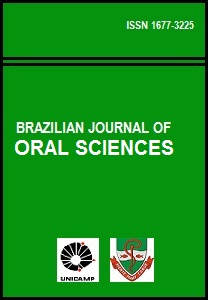Abstract
Aim: To assess the profile, quality of life and the presence of Temporomandibular Disorders (TMD) in elderly caregivers. Methods: Thirty-nine caregivers who worked in six long-stay institutions for the elderly in three different municipalities participated in the study. The research instruments were the WHOQOL-BREF, the Fonseca questionnaire and the socio-demographic questionnaire. The Kruskal-Wallis test with the Dunn’s correction was performed at a level of 5%. Results: Females accounted for 94.9% of the sample. The average monthly wage was R$ 832.00. The average working week was 39 hours. The WHOQOL dominions showed the following averages: 74.25 Physical; 70.33 Psychological; 65.79 Social Affairs; 58.38 Environment. Mild DTM was present in 43.6% of the caregivers, of which 7.7% were moderate, 5.2% severe, 23.0% of the professionals were asymptomatic and 20.5% did not answer. The association between TMD and the quality of life showed p=0.6752. Conclusions: It was concluded that there was no relationship between the quality of life and symptoms of temporomandibular dysfunction among the caregivers of elderly in this study.
This work is licensed under a Creative Commons Attribution 4.0 International License.
Copyright (c) 2015 Tânia Adas Saliba Rovida, Rosana Leal do Prado, Renata Colturato Joaquim, Luiz Fernando Tano, Cléa Adas Saliba Garbin
Downloads
Download data is not yet available.

